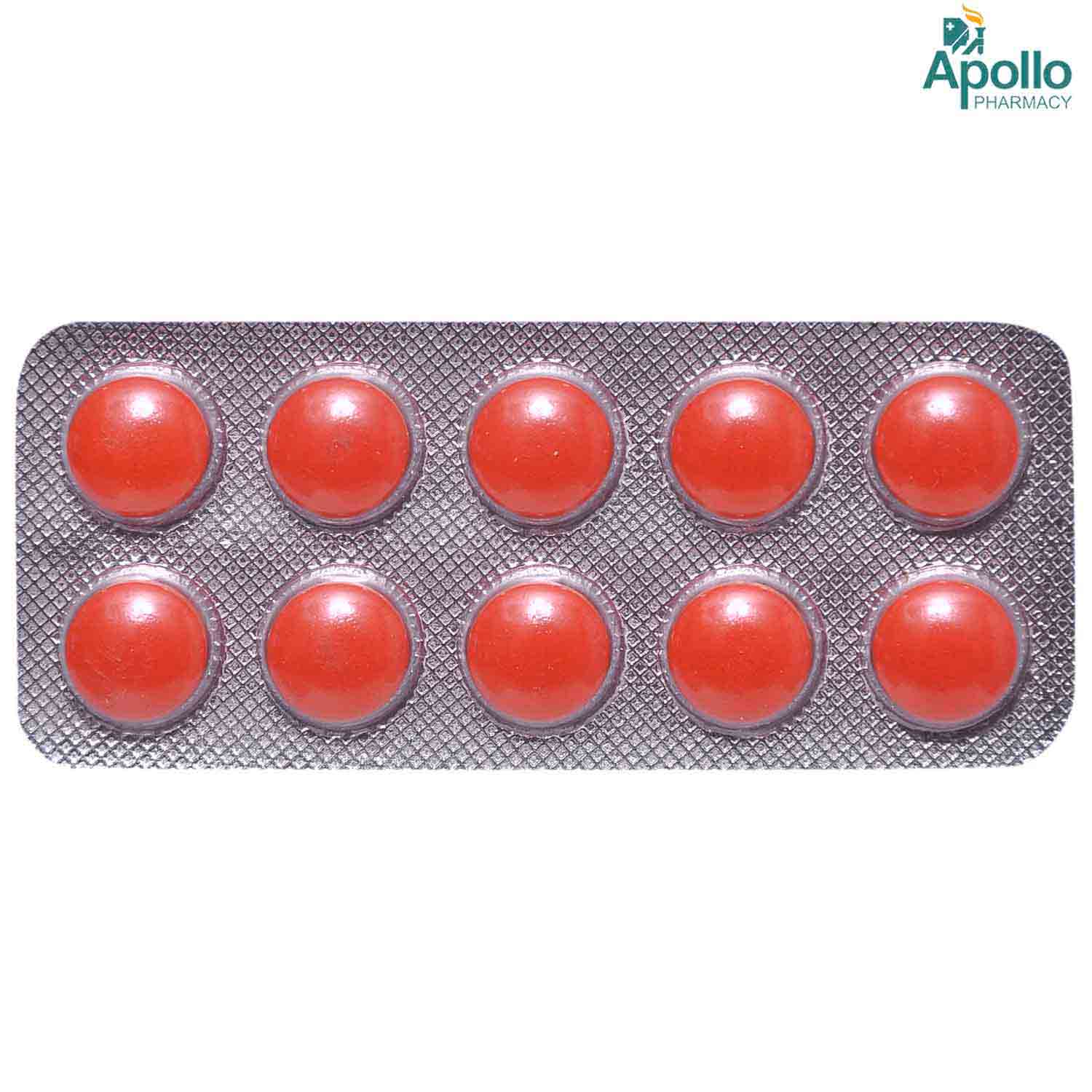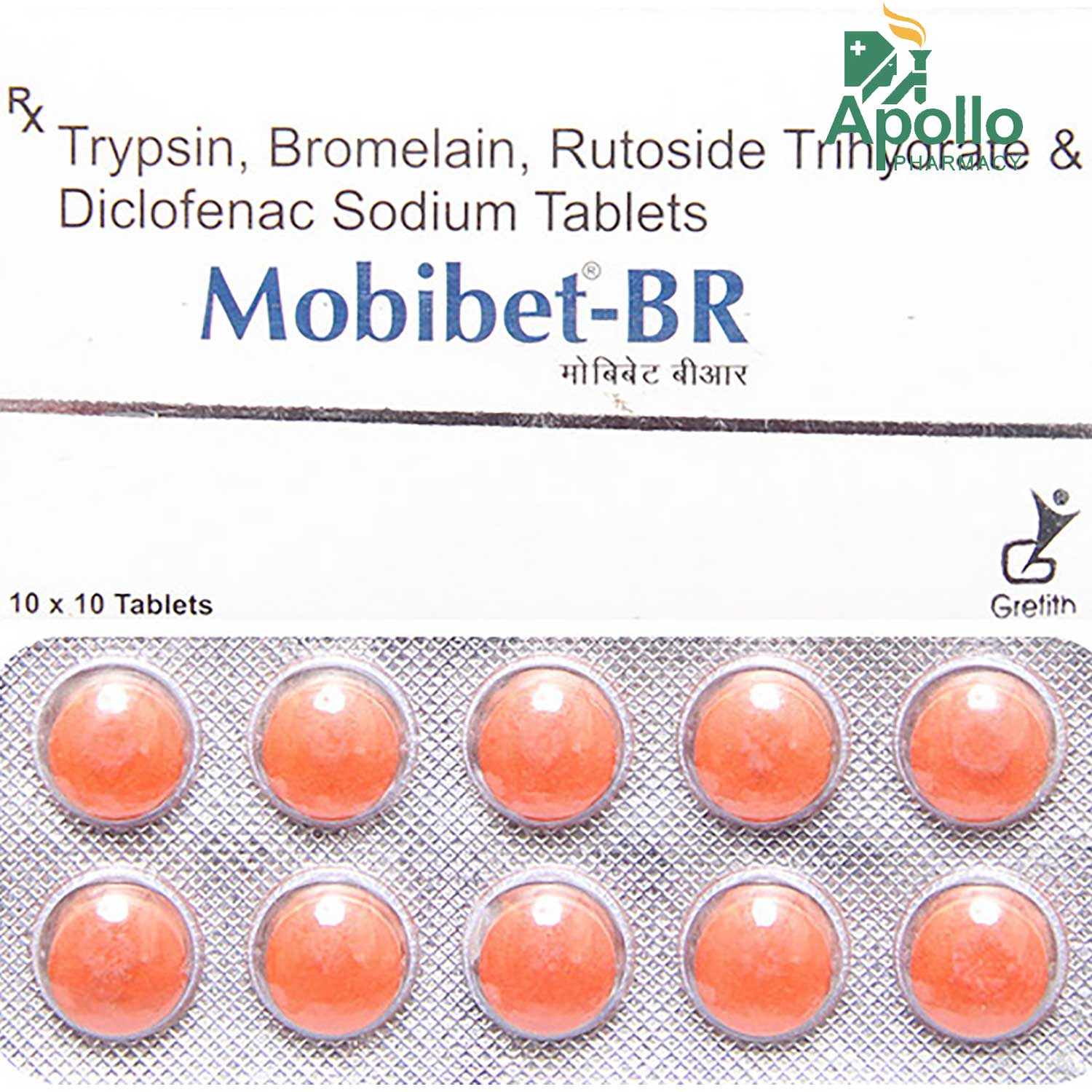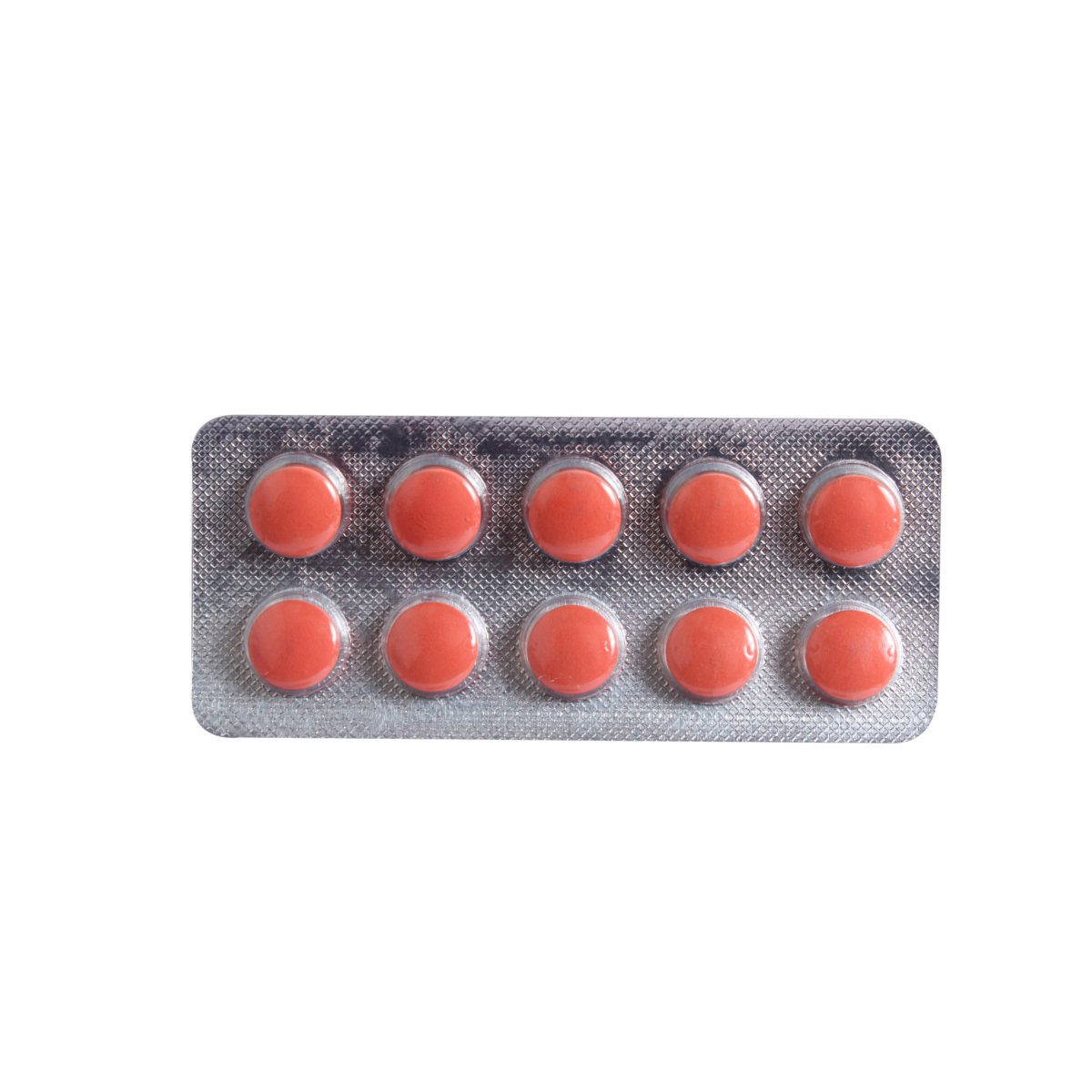Trypsin+bromelain+rutoside Trihydrate+diclofenac Sodium
About Trypsin+bromelain+rutoside Trihydrate+diclofenac Sodium
Trypsin+bromelain+rutoside Trihydrate+diclofenac Sodium is used to relieve pain. It is used in the treatment of pain, swelling, and inflammation associated with osteoarthritis (joint pain, especially in the knees, hip, hands, neck, and lower back) and rheumatoid arthritis (joint pain, especially in the hands and feet). It also provides relief from dental pain, pain after an injury, post-surgery pain, muscle pain, and sprain.
Trypsin+bromelain+rutoside Trihydrate+diclofenac Sodium contains Trypsin, Bromelain, Rutoside trihydrate, and Diclofenac sodium. Trypsin and Bromelain reduce pain, swelling, and inflammation by increasing the blood supply to the affected area. Rutoside trihydrate prevents further swelling and inflammation by neutralizing the chemicals (free radicals) that cause cell damage. Diclofenac sodium prevents the production of chemical substances (prostaglandins) that cause pain and inflammation.
Take Trypsin+bromelain+rutoside Trihydrate+diclofenac Sodium as prescribed by your doctor. In some cases, Trypsin+bromelain+rutoside Trihydrate+diclofenac Sodium may cause side effects such as nausea, vomiting, stomach pain, indigestion, heartburn, stomach upset, diarrhoea, headache, flushing (skin reddening), and skin rash. These side effects are usually mild and temporary. However, if any of these side effects persist or worsen, consult a doctor.
Consult your doctor if you are pregnant or breastfeeding. Trypsin+bromelain+rutoside Trihydrate+diclofenac Sodium is not recommended for children below 12 years of age. Trypsin+bromelain+rutoside Trihydrate+diclofenac Sodium may require dose adjustment when used in elderly people. Trypsin+bromelain+rutoside Trihydrate+diclofenac Sodium may cause dizziness, so do not drive or operate heavy machinery if you are dizzy. Avoid alcohol consumption as it may cause increased dizziness. Keep your doctor informed about your health condition and medications to rule out any interactions.
Uses of Trypsin+bromelain+rutoside Trihydrate+diclofenac Sodium
Medicinal Benefits
Trypsin+bromelain+rutoside Trihydrate+diclofenac Sodium provides relief from the pain. It helps you to do your daily activities by decreasing interference of pain and improving quality-of-life. Trypsin+bromelain+rutoside Trihydrate+diclofenac Sodium is a combination of four medicines: Trypsin, Bromelain, Rutoside trihydrate, and Diclofenac Sodium. Trypsin and Bromelain are enzymes that have antiseptic and anti-inflammatory properties. They promote healing and reduce pain, swelling, and inflammation by increasing the blood supply to the affected area. Rutoside trihydrate is an antioxidant and anti-inflammatory agent. It prevents further swelling and inflammation by neutralizing the chemicals (free radicals) that cause cell damage. Diclofenac sodium is a non-steroidal anti-inflammatory agent (NSAID) that prevents the production of chemical substances (prostaglandins) that cause pain and inflammation.
Directions for Use
Storage
Side Effects of Trypsin+bromelain+rutoside Trihydrate+diclofenac Sodium
- Nausea
- Vomiting
- Stomach pain
- Indigestion
- Heartburn
- Stomach upset
- Diarrhoea
- Headache
- Dizziness
Drug Warnings
Do not take Trypsin+bromelain+rutoside Trihydrate+diclofenac Sodium if you are allergic to any of the components. Inform your doctor if you have asthma, stomach ulcers, bleeding disorders, liver damage, kidney or heart problems. Consult your doctor if you are pregnant or breastfeeding. Trypsin+bromelain+rutoside Trihydrate+diclofenac Sodium is not recommended for children as safety and effectiveness have not been established. Trypsin+bromelain+rutoside Trihydrate+diclofenac Sodium should be used with caution in the elderly if prescribed by the doctor.
Drug Interactions
Drug-Drug Interactions: Trypsin+bromelain+rutoside Trihydrate+diclofenac Sodium may interact with other NSAID medications (aspirin) and anti-depressant medications (duloxetine).
Drug-Food Interactions: No interactions found.
Drug-Disease Interactions: Inform your doctor if you have asthma, fluid retention, thrombosis, porphyria, anaemia, heart failure, hepatotoxicity, hyperkalemia, hypertension, and platelet aggregation inhibition.
Drug-Drug Interactions Checker List:
Safety Advice

Alcohol
cautionIt is not known whether the Trypsin+bromelain+rutoside Trihydrate+diclofenac Sodium interacts with alcohol or not. However, it is advisable not to take or limit alcohol as it may cause increased dizziness.

Pregnancy
cautionConsult your doctor if you are pregnant. Your doctor will prescribe if the benefits outweigh the risks.

Breast Feeding
cautionConsult your doctor as there is no substantial research yet on the use of Trypsin+bromelain+rutoside Trihydrate+diclofenac Sodium in breastfeeding/nursing mothers.

Driving
cautionTrypsin+bromelain+rutoside Trihydrate+diclofenac Sodium may cause headache and dizziness. Do not drive or operate heavy machinery if you feel dizzy.

Liver
cautionTrypsin+bromelain+rutoside Trihydrate+diclofenac Sodium should be used with caution in patients with liver diseases. Please consult the doctor. Your doctor will prescribe only if the benefits outweigh the risks.

Kidney
cautionTrypsin+bromelain+rutoside Trihydrate+diclofenac Sodium should be used with caution in patients with kidney diseases. Please consult the doctor. Your doctor will prescribe only if the benefits outweigh the risks.

Children
unsafeTrypsin+bromelain+rutoside Trihydrate+diclofenac Sodium is not recommended for children below 12 years of age.
Habit Forming
Diet & Lifestyle Advise
- Do stretching, low impact aerobic exercises like walking on the treadmill, bike riding, and swimming. You can also strengthen your muscles by lifting light weights.
- Include fish like salmon, trout, tuna, and sardines. These fishes are enriched with omega-3 fatty acids that minimize levels of chemicals called cytokines, which ramp up inflammation.
- Your sitting posture is important, especially when you have pain and inflammation. Try to sit as little as possible and only for a short time. Long-term immobility is harmful in conditions like arthritis.
- Use back support like a rolled-up towel at the back of your spine curve to minimize pain. Keep your knees and hips at a right angle. Besides this, you can also use a footrest if required.
Special Advise
If you are due to undergo surgery or dental procedure, inform the doctor that you are taking Trypsin+bromelain+rutoside Trihydrate+diclofenac Sodium.
Patients Concern
Disease/Condition Glossary
Pain: Pain is a symptom triggered by the nervous system, causing uncomfortable sensations in the body. It can be temporary (acute) or lifelong (chronic). Acute pain lasts for a short time caused by damage to the tissues of the muscle, bone, or organs. Chronic pain lasts lifelong and can occur due to severe inflammation or tissue damage, such as in osteoarthritis and rheumatoid arthritis.
FAQs
Trypsin+bromelain+rutoside Trihydrate+diclofenac Sodium reduces pain, swelling, and inflammation by increasing the blood supply to the affected area and by preventing the production of chemical substances (prostaglandins) that cause pain and inflammation.
No, Trypsin+bromelain+rutoside Trihydrate+diclofenac Sodium does not cure osteoarthritis and rheumatoid arthritis; it can only reduce pain and inflammation associated with arthritis.
Trypsin+bromelain+rutoside Trihydrate+diclofenac Sodium should not be taken with aspirin or other nonsteroidal anti-inflammatory drugs (NSAIDs) unless prescribed by the doctor as it may increase the risk of gastrointestinal (stomach and intestine) side effects.
If you miss a dose, take it as soon as you remember. If it is time for the scheduled dose, skip the missed dose and take the scheduled dose instead. Avoid taking a double dose as it may cause side effects.











